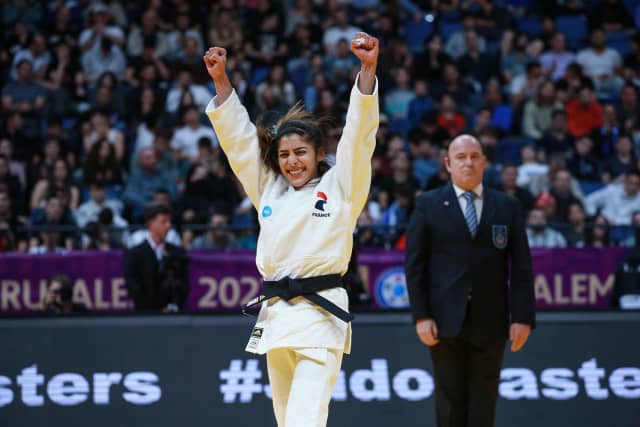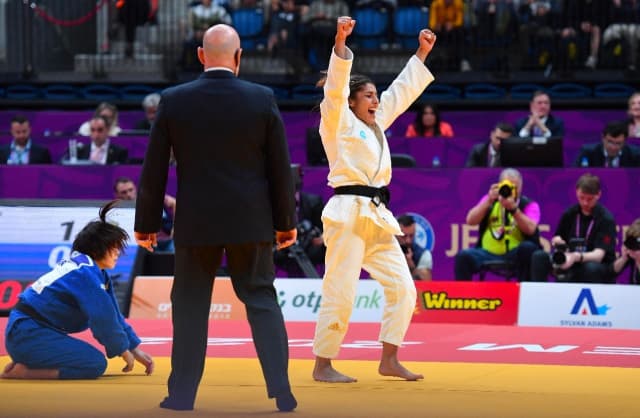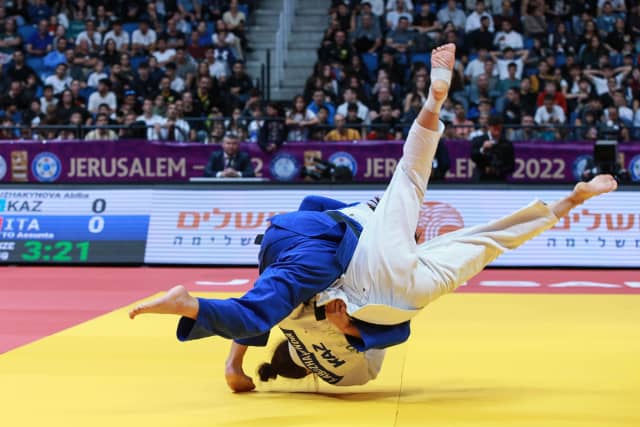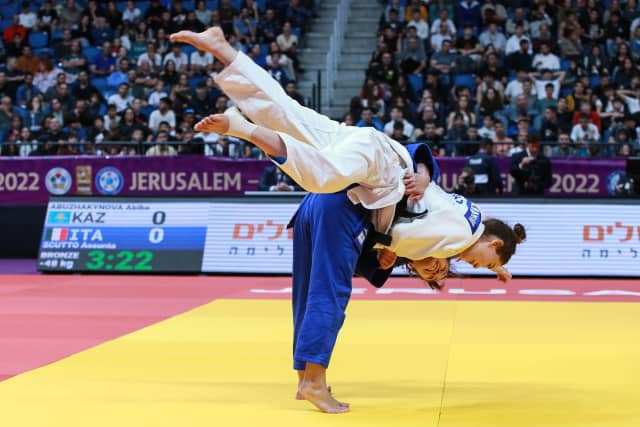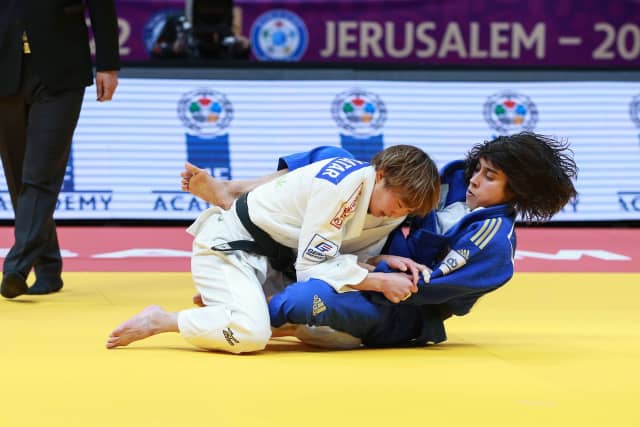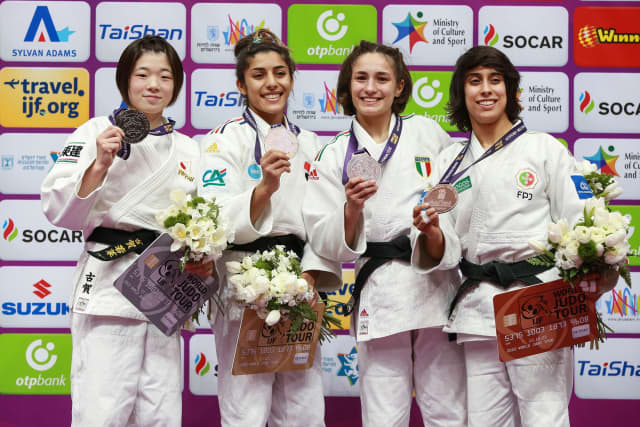In the next round, though, Salens came unstuck when the 8th seed, Abuzhakynova (KAZ) moved past her with relative ease to prepare for a contest with the number one in the round of 8.
Shira Rishony, on the other half of the draw, was not looking for any unnecessary risks, razor sharp and hunting for the ippon and a safe exit from the tatami. In round 1 she dominated Tanzer (AUT) and after a couple of minutes threw her. The next round, against an Italian with a lot to gain but maybe even more to lose, might not have been so clear-cut but Rishony wanted to shine at home.
Also in the first round, there could have been an interesting match between Aliyeva (AZE) and Martinez Abelenda (ESP), with the Azeri really coming forward at every event and searching for the results, which are as yet inconsistent but she looks ready to charge. She dominated the opening exchanges but against the run of play and with a calm experience on display, the Sponish judoka threw her opponent and almost didn’t react. Job done! Again Aliyeva would leave without a result. She is a surprise waiting to happen but it was not going to be today.
Rishony came back to the mat for her round two contest and continued with the same attitude that accompanied her for her first contest. She had laser focus and offered an energetic style, with Milani (ITA) under pressure immediately but Milani has bigger fish to fry because she is really battling an opponent at home, constantly and publicly. Milani, at 29 years old and beginning this Olympic cycle with dreams of the biggest stage, has had to face the reality that although she is inside the top ten in the world, young Scutto, just 20 years old, is coming for that title, to claim her spot as an Olympian and she has leap-frogged Milani to reach the top 4 in the world.
Milani and Scutto, drawn in the same quarter in Jerusalem, could have expected a head-to-head battle in the last 8 but Rishony put paid to that, throwing Milani cleanly in the round of 16 and giving Scutto yet more breathing space. Milani may be seeing her target slipping away from her, event by event, despite great results of her own. Rishony is on home soil and doesn’t care about the Italian civil war; that is between them and her remit is not blurred at all. However, having got rid of one Italian, Rishony couldn’t repeat it and Scutto scored an early waza-ari which she held expertly until the time came to do it again, cementing her place in the semi-final against Koga (JPN). That win went to Japan and Scutto dropped into a bronze medal contest that looked totally winnable, with either Abuzhakynova (KAZ) or the very experienced American Laborde to contend with. Scutto’s form is unquestionable but we know a result is never written in advance.
The final block brought interesting contests without pre-determined winners. Boukli reached the final, to face Koga, without a hitch. She was strong, determined and with a confidence that spilled over, presenting itself as an impossibility to lose. She passed Costa in the semi-final just as easily as she did the others. The final could have present a test though.
It began with Boukli perfectly concentrated and precise with her hands. As Koga was trying to get closer, the French competitor kept the distance and used the momentum to play with changes of direction. This play brought about a situation in which she scored a first waza-ari with sumi-gaeshi, an advantage that she then controlled until the end of the match, showing some nervousness not to fall into the Japanese trap. Congratulations to Shirine Boukli for this first gold medal at the Masters. Just off the tatami, she was able to put a bit of a smile on her face and take selfies with the public, while they were cheering for her.
The first bronze medal contest, saw Abiba Abuzhakynova (KAZ) facing Assunta Scutto (ITA). The Italian athlete didn't give any chances to her opponent to shine as she catapulted her twice with super hip movements, the second one being a magnificent utsuri-goshi, for a clear victory.
Narantsetseg Ganbaatar (MGL) and Catarina Costa (POR) engaged in the second bronze medal contest. Costa scored the first waza-ari with a well-executed low o-uchi-gari, that was slightly too far away but with just enough impetus to take the lead, after Ganbaatar rolled on to her back. Costa was close to scoring a second waza-ari with the same technique but the initially announced score was taken off the scoreboard after review. Well driven by her coach, Joao Neto, she remained focused to avoid the Mongolian storm and step up on to the podium for a well deserved medal.


